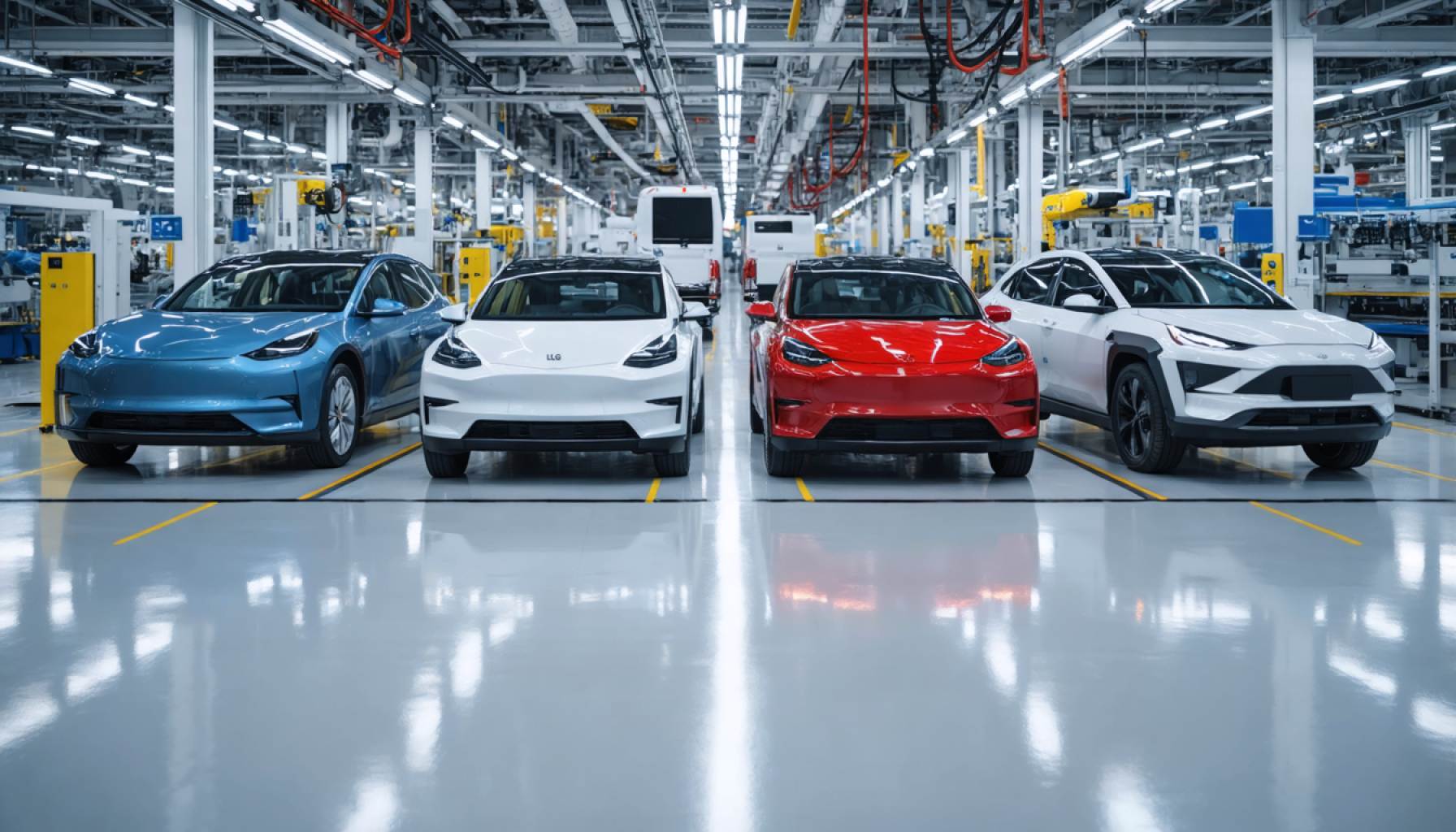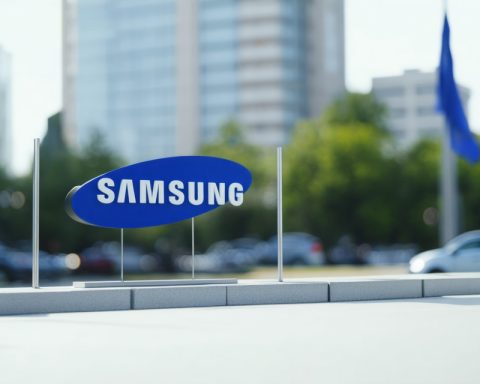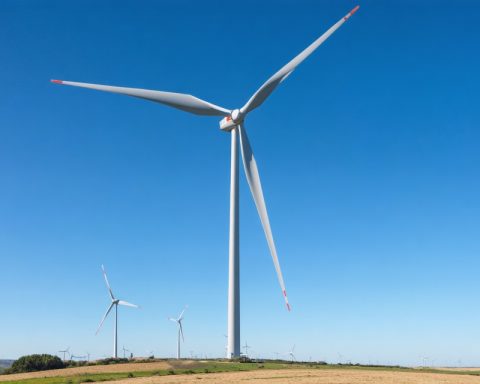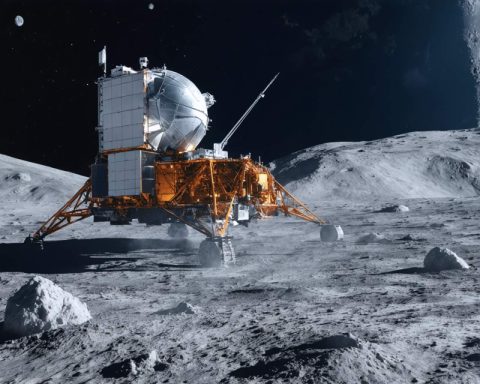- LG Energy Solution acquires General Motors’ stake in a Michigan battery plant for $2.08 billion, strengthening its position in the U.S. energy market.
- The acquisition enhances LG Energy’s capacity, aligning with its fiscal prudence by integrating without impacting capital expenditure forecasts.
- GM shifts focus to partnerships in Ohio and Tennessee, adapting to the evolving EV market and recent policy challenges.
- LG Energy’s deal supports its agreement with Toyota, providing 20 GWh of battery modules annually, enough for nearly 200,000 vehicles.
- LG Energy reduces facility investments by 30%, potentially lowering transaction costs below $2 billion.
- Toyota plans to source batteries from the Lansing site, embedding LG Energy further into the market as it propels towards an electric future.
In a bold strategic move, LG Energy Solution has taken a giant leap in fortifying its position within the American energy landscape. The company is acquiring General Motors’ entire stake in their joint battery venture in Lansing, Michigan, for a staggering $2.08 billion. This acquisition, concluding by the end of May, is set to redefine battery production dynamics in the United States and energize Toyota’s aspirations in the electric vehicle (EV) sector.
By bringing the Ultium Cells No. 3 plant under its umbrella, LG Energy consolidates its manufacturing might, seamlessly integrating this facility into its expansive network without straining its capital expenditure forecast. This approach underscores the company’s fiscal prudence, as they adapt and refine their growth strategies amidst a notoriously volatile market.
Amid this backdrop, GM’s pivot comes as a response to an evolving EV market, influenced by fluctuating sales and political shifts. With their exit from the Michigan plant, GM focuses more keenly on collaborations in Ohio and Tennessee, recalibrating their trajectory under the challenging climate shaped by recent policy uncertainties.
The ripples of this acquisition extend far and wide, particularly enhancing LG Energy’s capacity to fulfill its decade-long agreement with Toyota. This pact promises to deliver 20 gigawatt-hours of NCMA battery modules annually, poised to electrify nearly 200,000 advanced vehicles. Not only does this partnership bolster Toyota’s electric dreams, but it also cements LG Energy’s role as a pivotal player, spearheading the transformation of America’s vehicle energy supply chain.
This decisive move by LG Energy also aligns with its recent announcement of slashing facility investments by as much as 30% from its previously set $8.8 billion budget for 2023. The meticulous due diligence process suggests the transaction cost might eventually dip below the projected $2 billion mark, reflecting strategic financial maneuvering.
Toyota has laid clear its intent to pivot its battery procurement to the Lansing site once this acquisition transitions. This shift further embeds LG Energy at the core of a reshaping market, driving momentum as the industry races toward a sustainable, electric future.
LG Energy’s Bold Acquisition and the Future of Battery Production in America
Introduction
In a transformative step, LG Energy Solution is securing a landmark position in the American energy sector by acquiring General Motors’ entire stake in their joint battery venture in Lansing, Michigan, for $2.08 billion. This acquisition is poised to reshape battery production in the U.S. and empower Toyota’s ambitions in the electric vehicle (EV) sector. Let’s explore the implications and additional aspects of this strategic move.
New Insights and Developments
1. Industry Trends and Future Forecasts:
– The EV market in North America is witnessing rapid growth, driven by increased environmental regulations, governmental incentives, and technological advancements. According to the International Energy Agency (IEA), global EV stock passed 10 million in 2020 and continues to increase exponentially, highlighting a promising future for battery production companies like LG Energy.
2. LG’s Strategic Financial Adjustments:
– By reducing facility investment from $8.8 billion by up to 30%, LG Energy demonstrates fiscal responsibility, ensuring capital efficiency amid market volatility. This careful financial balancing allows for continued expansion without overextending resources.
3. Real-World Use Cases:
– LG’s acquisition will aid in the fulfillment of its decade-long agreement with Toyota, producing 20 gigawatt-hours of NCMA (Nickel Cobalt Manganese Aluminum) battery modules annually, which are crucial for powering nearly 200,000 advanced EVs. This collaboration underscores the importance of large-scale, reliable battery supply chains in meeting rising demand.
4. Environmental Impact and Sustainability:
– The shift towards NCMA batteries is significant. They offer a higher energy density and longer lifespan compared to traditional battery chemistries, crucial for sustainable manufacturing practices.
5. Market Competitiveness and Comparisons:
– With LG’s expanded capabilities, comparisons can be drawn with other industry giants such as Panasonic and Tesla. The relentless competition in battery technology advancements can lead to better pricing, innovation, and production efficiency.
Key Questions Answered
– Why is this acquisition important?
– LG’s acquisition solidifies its manufacturing capabilities, supporting its long-term agreements and positioning it as a leader in the EV battery market.
– How does this affect GM?
– GM’s reorientation towards facilities in Ohio and Tennessee allows it to diversify and adapt to policy changes, while maintaining a focus on emerging markets and collaborations.
– What does this mean for Toyota and other automakers?
– Automakers like Toyota benefit from steady supplies of advanced batteries, sustaining their EV production goals and ensuring they remain competitive in the market.
Actionable Recommendations
– For Investors: Monitor LG Energy’s financial reports and strategic announcements for more insights into how they capitalize on this acquisition.
– For Consumers: Expect more EV options with longer ranges and better battery life as manufacturers benefit from LG’s enhanced production capabilities.
– For Industry Observers: Keep track of policy shifts as they could further influence strategic decisions by major players in the EV market.
For more insights and developments on the electric vehicle and battery industry, visit LG Energy.
By thoroughly understanding these dynamics, businesses and consumers can position themselves advantageously as the battery production landscape continues to evolve.













